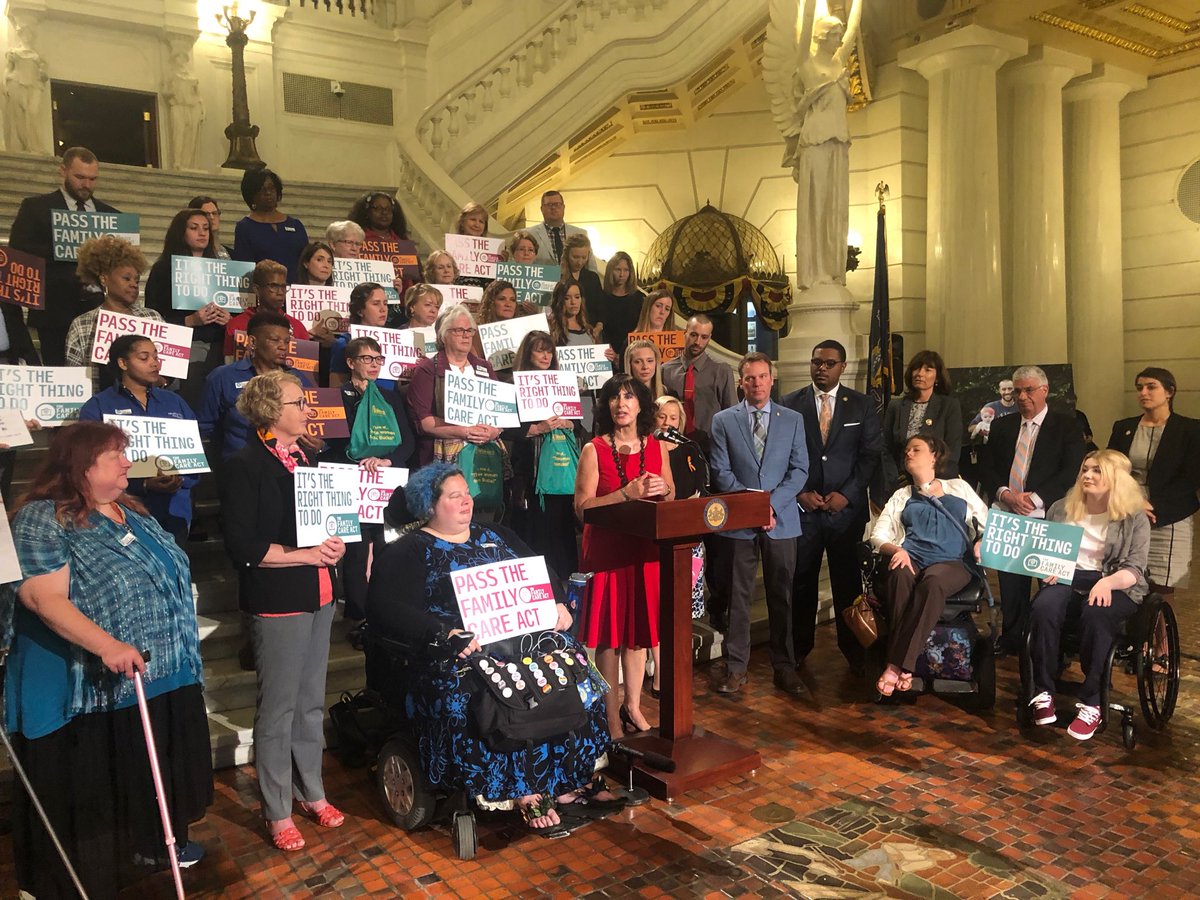AARP Hearing Center
At AARP, we are fighting in Pennsylvania and around the country to support family caregivers.
That’s because most of us are, have been, or will be a caregiver, or will need the help of a loved one to live independently.
On behalf of AARP's 1.8 million members in Pennsylvania, AARP PA State President Joanne Grossi spoke out in support of the PA Family Care Act which would provide paid family leave for caregivers who are helping their loved ones. At the June 5th press conference held at the State Capitol, Grossi stated,
"As the primary caregiver for my father, I can tell you from personal experience that family caregivers are the first line of assistance for most people, helping to make it possible for older adults and people with disabilities to remain at home, and out of costly taxpayer-funded institutions like nursing homes."

And it’s a big job. AARP research shows there are 1.6 million family caregivers across Pennsylvania who provide 1.54 billion hours of unpaid assistance annually with a staggering value of $19.2 billion. In many cases, these family members don’t even identify themselves formally as caregivers—they are sons, daughters, husbands, wives, and grandchildren. Most of us undertake caregiving willingly, and many of us find it a source of deep satisfaction.
But these days, more than 60% of family caregivers are employed. The ability to take time off to care for a family member or close friend without losing income—or, worse, losing a job—is a growing social, health, and economic issue facing family caregivers who work.
Right now caregivers are facing a stressful juggling act between work, their caregiving role, and other family responsibilities. And when work requirements conflict with family obligations, some employed caregivers have to make difficult decisions that can lead to lost wages and missed career opportunities.
The economic consequences of reducing work hours, quitting a job to provide care, or taking an unplanned early retirement can be significant. Research shows that family caregivers who disrupt their careers or leave the labor force entirely to meet full-time caregiving demands can face substantial economic risk and short-term and long-term financial consequences by losing salary, personal retirement savings, eventual Social Security and retirement benefits, career opportunities, and overall financial well-being.
That’s why I’m so pleased to be here today with Senators Laughlin and Collett and Representatives Thomas and Miller as part of a bipartisan effort to pass Pennsylvania’s Family Care Act. Paid family leave has been shown to lessen the strain of caregiving, provide family caregivers with greater financial security, increase employee retention, and help maintain a productive workforce. Right now, six states and the District of Columbia have paid family leave programs, and several others are considering enacting such policies.
At AARP, we believe paid family leave policies are a sound investment, from both the perspective of employers and Pennsylvania’s working families. Workers should not have to choose between keeping their jobs and providing care to a seriously ill family member.
In the end, families take care of their loved ones, because that’s what families do. But they need our help. That’s why AARP is asking lawmakers to pass Pennsylvania’s Family Care Act.































































